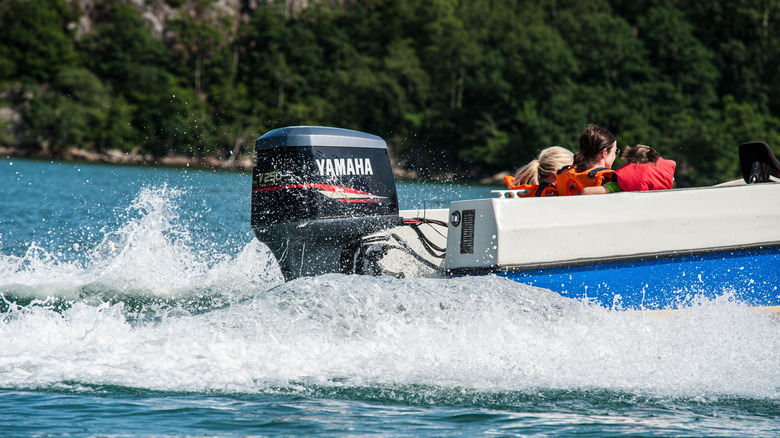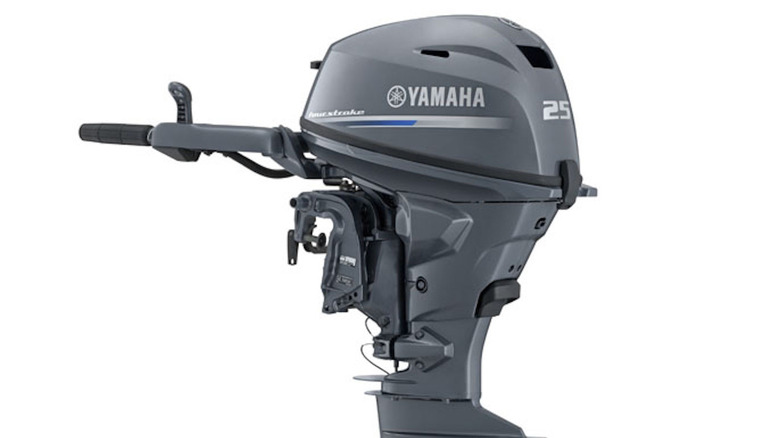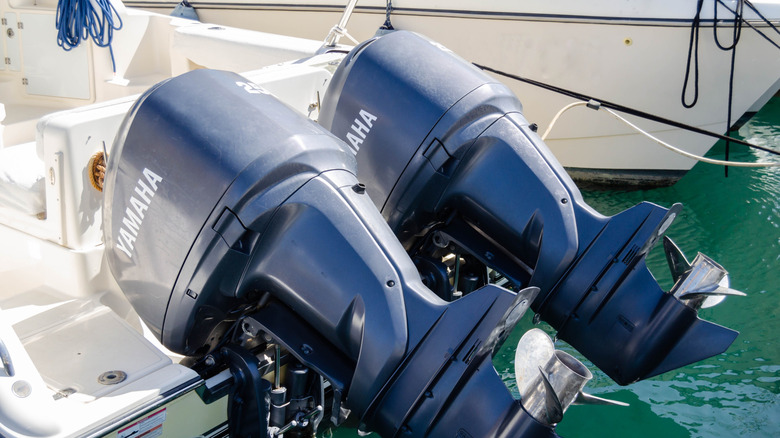Where Are Yamaha Outboard Motors Made And Are They Any Good? Here's What Users Say
The stalwart Japanese brand Yamaha has been operating for over 100 years now, with a solid rep across several industries. You may already be familiar with the company's musical instruments and audio gear over its motorsports offerings. However, when it comes to boating, its outboard motors are quite popular among enthusiasts and in the industry, with strong brand recognition and reliability.
With globalization, stratified supply chains, and numerous factories producing parts, it raises the simple question: Where are Yamaha motors made? Beyond that, many consumers seek to understand how (or if) the quality of its motors has changed. If you bought a Yamaha outboard motor in 2003, for example, and it still works well today — can you be confident that Yamaha still makes products of the same caliber?
While Yamaha may have many tough competitors in this space — fellow Japanese brand Honda comes to mind — its reputation remains rock solid. From small, 2.5-horsepower outboards for fishing boats and general recreation, to 400-horsepower V8 giants that produce eye-watering speeds, Yamaha has many engines in its lineup. To make these machines, it leverages a "global manufacturing network," per the Yamaha website, with R&D, dies, molds, and parts production spanning many countries. From Asia to South America, to Europe, and the United States, Yamaha produces motors using numerous integrated machining factories.
Supply chain complexities
Yamaha has a network of factories contributing to the final assembly of these robust outboard motors: Medium-sized and larger 4-stroke engines, as well as larger 2-strokes are made in Fukuroi, Shizuoka, Japan. Small and medium-sized 4-strokes, along with small-to-medium-sized 2-stroke motors, are put together in Yatsushiro, Kumamoto, Japan. Finally, its small 4-stroke and 2-stroke outboards are made in Thailand by its Thai division.
Modern supply chain complexities can translate to many cooks in the kitchen, where the manufacturing and integration of one motor can take place across various locations. These machines are made of hundreds of small parts, which adds to the entanglement of production networks. However more importantly, beyond the provenance of an outboard engine, its quality is of great concern for the end user.
Brands like Mercury, Suzuki, Honda, Evinrude, and Tohatsu are all considered direct competitors to Yamaha. Each has its pros and cons when it comes to reliability, value, availability, options, and aesthetics. Considering how much an outboard engine can set you back, many find sourcing one to be a lofty proposition when looking to start anew or upgrade. Users who prefer Yamaha over the competitors mentioned above are likely going by positive experiences in the past, as well as online reviews and word of mouth, to justify the outboard cost. Currently, the brand's reputation remains positive writ large.
Positive feedback
Many consumers acknowledge the brand's consistency and reliability in its outboard motor line. Taking a step back from two-stroke motors, Yamaha opted to develop high-tech, cleaner-burning, more efficient four-stroke versions at the end of the 20th century. The company rallied towards innovation with 16-valve cams via four cylinders, combined with computer-controlled ignition systems, while optimizing tech in its two-strokes to reduce emissions. This all boils down to reliability, with the brand known as a "workhorse" giving users smooth throttle responses, good fuel efficiency, high power, and operational consistency.
Moving into the 2000s and beyond, the brand continued to innovate, notably in the horsepower arms race with its V8s for offshore exploration, via the F350's introduction in 2007. Fast forward to this year, as of February, Yamaha notably won the National Marine Manufacturers Association (NMMA) CSI Award for excellence in customer satisfaction across five categories, including outboard engines.
The company has been a CSI winner in this category every year since 2001, when the organization began awarding manufacturers. Pretty impressive. With accolades and praise from customers, Yamaha seems to be a safe bet for those looking to source a reliable outboard motor with a track record behind it.


